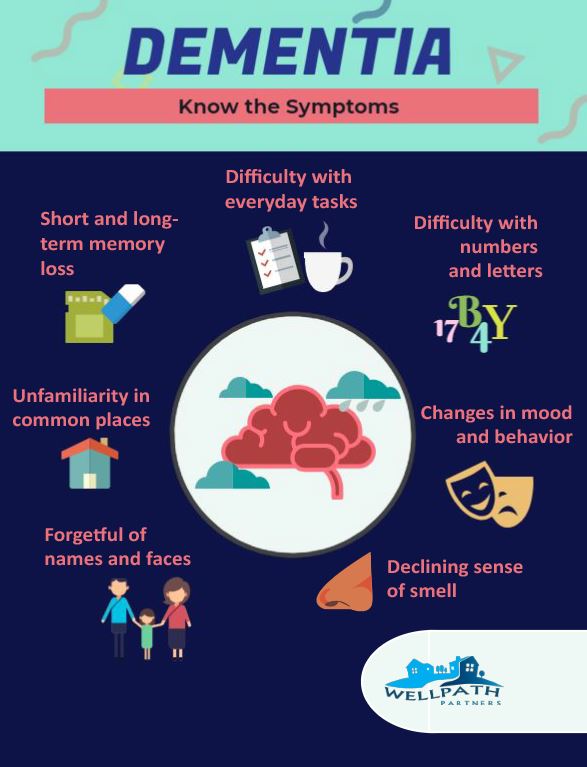
Have you heard of Lewy Body Dementia (LBD) before? Lewy body dementia, also referred to as “dementia with lewy bodies,” is the second most common type of progressive dementia after Alzheimer’s disease. What is a Lewy body? Lewy bodies are protein deposits which develop in nerve cells in the brain regions involved in thinking, memory, and movement (motor control). How does this happen? Most commonly occurring in men over the age 60, when protein abnormally builds up into masses known as lewy bodies, they hinder neural performance causing cognitive difficulties. This protein is also associated with Parkinson’s disease. People who have Lewy bodies in their brains also have the plaques and tangles associated with Alzheimer’s disease.
What are the signs and symptoms? Symptoms of LBD may include:
- Fluctuating attention/alertness: This is the most common symptom. Abnormal attention patterns may occur similar to ADHD.
- Cognitive/memory problems: Second most common symptom. Older adults with LBD may experience short and long term memory loss.
- Sleep difficulties: Almost all patients with LBD experience difficulty sleeping even in the earliest stages of the disease.
- Movement disorders: Some individuals will start out with a movement disorder leading to the diagnosis of Parkinson’s disease and later develop dementia. This is diagnosed as Parkinson’s disease with dementia.
- Visual hallucinations: Some patients may even present neuropsychiatric symptoms of irregular behaviors or reports of visions.
- Depression/Apathy: Lewy bodies developing in the frontal lobe can cause mood swings, extreme emotions, or general disinterest.
How do you treat/prevent LBD?
The symptoms of LBD are treatable! All medications prescribed for LBD are often the same as those used in treating similar symptoms of Alzheimer’s disease (AD) and Parkinson’s disease (PD) with dementia. Such medications include cholinesterase inhibitors and antipsychotic drugs. While all these medications include a doctor’s prescription, they can be effective in offering symptomatic benefits for cognitive, movement and behavioral problems.
Discussing options with a doctor can go a long way for both treatment and prevention. Early and accurate diagnosis of LBD is essential because LBD patients may react to certain medications differently than AD or PD patients. A variety of drugs, including anticholinergics and some antiparkinsonian medications, can worsen LBD symptoms. If you or an aging loved one is in need of special medical services or consultations, WellPath Partners can connect you with the best senior care resources in California.
WellPath Partners is your senior resource referral guide. Contact us for a FREE consultation. Also be sure to follow us on ALL social media platforms and join us weekly for more content and public health discussions.
By Prithvi Chauhan
